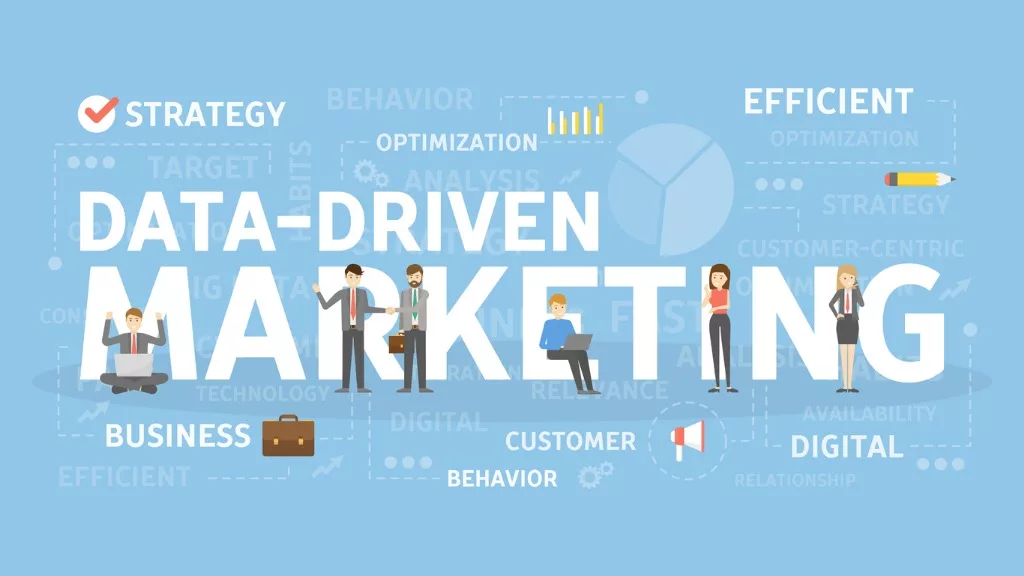
Data-Driven Marketing: How Analytics Can Transform Your Business
In today’s digital age, marketing has evolved from guesswork and intuition to a science driven by data. Businesses that leverage analytics to refine their marketing strategies gain a competitive edge, optimize their resources, and maximize their return on investment (ROI). Understanding how to use data effectively can be the difference between a struggling marketing campaign and one that delivers substantial growth.
Understanding Data-Driven Marketing
Data-driven marketing is the practice of using customer information, market trends, and performance analytics to guide decision-making. Instead of relying on traditional advertising methods that may or may not resonate with audiences, marketers now analyze real-time data to personalize campaigns, enhance customer experiences, and improve conversion rates.
By tracking key performance indicators (KPIs) such as website traffic, customer engagement, click-through rates (CTR), and conversion rates, businesses can measure the effectiveness of their marketing efforts and make necessary adjustments. This approach ensures that marketing resources are allocated to strategies that yield the highest ROI.
Refining Marketing Strategies with Data
- Audience Segmentation and Personalization
Data allows businesses to segment their audience based on demographics, behaviors, interests, and purchasing history. This segmentation enables highly personalized marketing campaigns that speak directly to the needs and preferences of each group. Personalized marketing fosters deeper connections with customers and increases engagement, leading to higher conversion rates. - Optimizing Ad Spend
With data analytics, businesses can track which marketing channels yield the best results. Whether it’s social media, email marketing, pay-per-click (PPC) ads, or influencer partnerships, analytics help determine where to invest more budget and which channels to scale down. This precision eliminates wasteful spending and ensures every dollar contributes to business growth. - Predictive Analytics for Future Success
Predictive analytics leverages historical data to forecast future consumer behaviors. By analyzing past trends, businesses can anticipate customer needs and market demands, allowing them to create proactive marketing campaigns. For example, an e-commerce store can predict seasonal buying patterns and launch targeted promotions to drive sales at peak times. - Improving Customer Retention
Retaining an existing customer is more cost-effective than acquiring a new one. Data-driven marketing enables businesses to understand why customers leave and develop strategies to enhance loyalty. By analyzing feedback, churn rates, and customer interactions, businesses can implement loyalty programs, personalized offers, and improved customer service strategies to increase retention. - A/B Testing for Campaign Optimization
A/B testing (or split testing) is a powerful tool for refining marketing campaigns. By testing different versions of ads, emails, landing pages, or social media content, businesses can identify which elements resonate most with their audience. This continuous optimization leads to better engagement and improved marketing efficiency.
Increasing ROI with Data Insights
Data-driven marketing directly impacts ROI by improving decision-making and eliminating guesswork. When businesses understand what works and what doesn’t, they can allocate budgets more efficiently, optimize content strategies, and create high-impact campaigns. Additionally, real-time analytics allow businesses to make agile adjustments, ensuring that marketing efforts remain effective in a rapidly changing digital landscape.
Companies that embrace data analytics gain a competitive advantage by delivering relevant, timely, and engaging content to their audience. As artificial intelligence and machine learning continue to evolve, the future of marketing will become even more data-centric, offering businesses unprecedented opportunities to grow and scale.
Data is no longer optional in marketing it is essential. Businesses that harness the power of data analytics can refine their marketing strategies, optimize their spending, and significantly increase their ROI. By leveraging customer insights, predictive analytics, and continuous optimization techniques, brands can create impactful campaigns that drive meaningful business results. In an increasingly competitive market, data-driven marketing is the key to staying ahead and achieving long-term success.